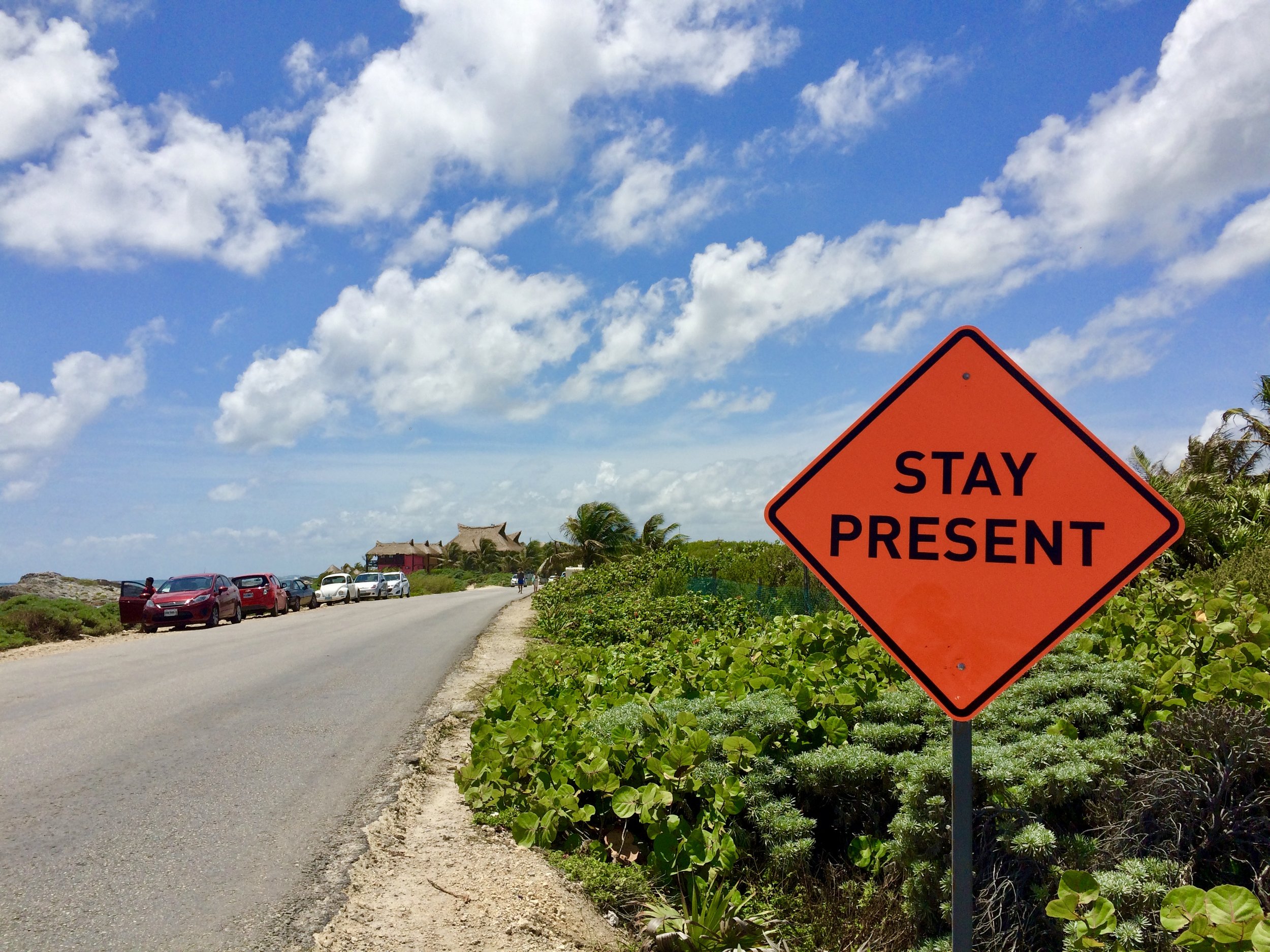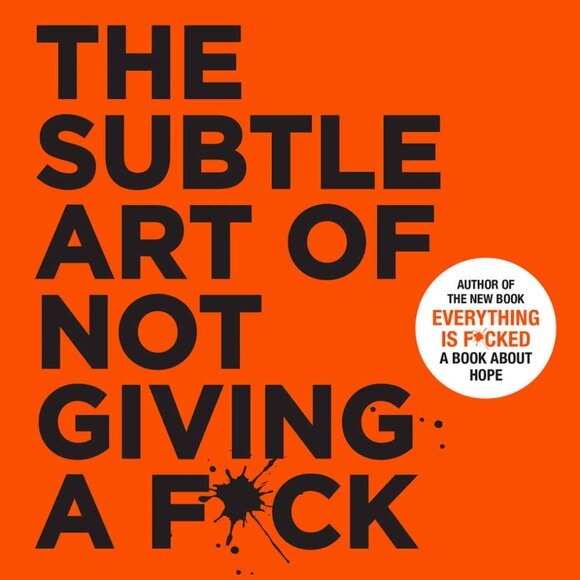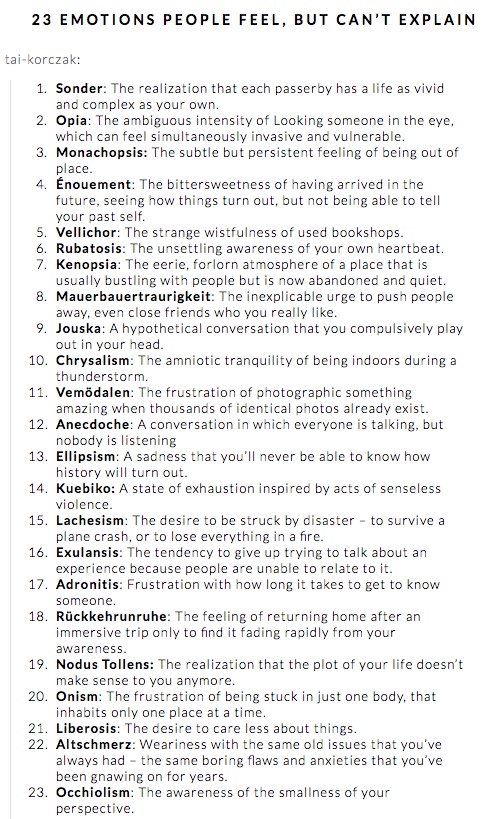
Some things personal, some things good for you,
and some overall great things.
Apathy is cancelled
I think we’d all agree that the past several months have been pretty horrible. I have been paralyzed about what to write. But I feel no paralysis whatsoever about what to do in the world. There are so many actions and conversations to be undertaken, with clients and not-clients alike.
I would recommend what to read or watch or do, but this blog is not trying to lean politically, except to reiterate that Black Lives Matter, which should not be a political statement but rather a self-evident and undisputed truth. Since it seems that everything leans politically these days, I’ll just remind everyone to stay healthy and safe, stay educated, and stay proactive. Apathy is cancelled.
As a supplement to your own action steps, you might want to check back in with your values. Acceptance and Commitment Therapy, or ACT, reorients us to values as a tool to overcome challenges or stuck points. Check out this series of handouts you can explore on your own:
https://thehappinesstrap.com/upimages/Complete_Worksheets_2014.pdf
As always, I am also a huge fan of Positive Psychology, which broke the mold by designing the anti-DSM (our pathology-focused diagnosis manual). Not just theory, this anti-DSM is based on exhaustive research into what builds our “character strengths and virtues.” These are determined by our intrinsic passions and values. Take a test of yours here, and then either double down on your top five, or use your bottom five for a values makeover:
Then, act. And by act, I mean, vote. Also, be kind to yourself. And others.
My daughter being kind to her new cat, Mafia. But she is also a fairly radical activist taking other actions, too.
Ps. Even Cancel Culture is fairly cancelled, and can indeed breed it’s own form of apathy! There are a couple of episodes of The Daily that address this trend, so check them out. But if anything should actually be cancelled, it’s apathy.
Letters From Lockdown
As we really “get to know ourselves” and “expand into the spaces” of our (actually) not-Zen-at-all, stressed and worried and messy and crowded isolation spaces, it is greater than you’d imagine to listen to Letters From Lockdown on Snap Judgement.
Glynn Washington (just the best host, right?!) chronicles the lives of those who’ve endured solitary confinement, been kidnapped or forced into refugee camps, spent months at sea. Talk about lockdowns.
There are two types of us: those who see others’ deep suffering as a reason to suffer less in comparison (either born from guilt or gratitude) and those who see others’ suffering as reason to be even more depressed about it all.
I hope for the former, although please bypass the unnecessary guilt (suffering is suffering, as you know). But it’s not about who has suffered more, anyway. It’s about the stories of how those in isolation get clever, get creative, get through it. Whatever there is to get out of it, it’s still better than getting sick.
The Not So Subtle Art
by Marc Manson
Everybody is talking about this book.
Even the dean at my nephew’s graduation was touting it, although the almost constant f-bombs precluded him from giving the book to the students. For the faculty, it was required reading. This book is not written by an expert. It’s written by a blogger. Maybe everything is written by a blogger now… or every writer has a blog? Either way, this guy is not a psychologist, not even close.
That’s why it’s so striking that this book is so psychological, and so relevant to psychology. Especially my brand of positive psychology, which is not so much about symptoms and problems, but more about how to design your life to create fulfillment and even happiness. But constructs like happiness are slippery slopes and this book does a remarkable job explaining that, along with what to do about it.
I mean, even the chapter titles of the book just make me smile:
Don’t Try
Happiness Is a Problem
You Are Not Special
The Value of Suffering
You are Always Choosing
You’re Wrong About Everything (But So am I)
Failure Is the Way Forward
The Importance of Saying No
…And Then You Die
Unfortunately, this blogger guy really likes bad words. I wonder if anyone has counted the number of times Marc Manson uses the word fuck in this book. What I do know is that the number is just too high. It’s a little funny to even have it in the title of the book, and I get it. But it loses its funny, snap-you-into-the story value pretty quickly.
For my students and some of my clients, I went ahead and condensed the book, which is something I love to do (because who reads anymore?) And I will break down some concepts in upcoming posts. But if you really like the word fuck, and if you like to read, you can (and should) go read the book.
HERE’S THE GIST
Happiness comes from expecting and tolerating negative experiences (to make the positive ones that much better), learning to solve meaningful problems, and taking radical responsibility for our lives. We must establish values and define manageable goals. We must allow for disappointments, rejections, and for other people to figure out their own stuff.
Manson tells great stories, at one point invoking Ernest Becker to point out that most of what we care about, worry about, and try to do in life is really based in a deep existential anxiety as we contemplate mortality. Becker was a brief (due to an untimely death), unconventional, and famous professor of anthropology, psychology, and philosophy. Students loved him but the faculty dreaded him (my favorite kind of professor!). In 1973, he wrote The Denial of Death, in which he coined the term death terror; due to humans’ unique ability to contemplate death.
The premise of death terror is pretty interesting. Becker identified two selves: the physical self (our bodies) and the conceptual self (our identities). Because the physical self will surely die, we’d rather focus on the conceptual self, devoting our energy to what might live on forever. He called these our immortality projects. We try to get our names on buildings or to give ourselves to others, especially our children, so that our influence might live on forever through our actions. We wish to be remembered, revered, idolized. As you might guess, our immortality projects are based on our values, but too much of our energy goes into these projects at the expense of being present and finding everyday meaning in life. It’s hard to be curious and excited about the world when we are so focused on ourselves.
the meaning of life, the universe, and everything
Is 42…jk. At least Manson answers the question whereas Douglas Adams refused to (my apologies for the multiple-famous-author cross-referencing).
Ok, its this:
Realize you are going to die, get zen with it (remember: you were lucky enough to have lived in the first place), become less entitled, become more humble.
Here’s where I’d like to turn it back over to Manson, as this passage is quite something, and sums it all up. Maybe I will print it and make a poster for my wall. You can find it on page 200:
Death is the only thing we can know with any certainty. And as such, it must be the compass with which we orient all of our other values and decisions. It is the direct answer to all of the questions we should ask but never do. The only way to be comfortable with death is to understand and see yourself as something bigger than yourself; to choose values that stretch beyond serving yourself, that are simple and immediate and controllable and tolerant of the chaotic world around you. This is the basic root of all happiness. Whether you are listening to Aristotle or the psychologists at Harvard or Jesus Christ or the goddamn Beatles, they all say that happiness comes from the same thing: caring about something greater than yourself, believing that you are a contributing component in some much larger entity, that your life is but a mere side process in some great unintelligible production. This feeling is what people go to church for; it’s what they fight wars for; it’s what they raise families and save pensions and build bridges and invent cell phones for, this fleeting sense of being part of something greater and more unknowable than themselves.
(Almost) not a single bad word in the whole passage! Well done.
Ps. At the end of the book, there’s a somewhat questionable story about Manson coming up against the edge of his life, literally, and why he is still here to write this book. Personally, I find that part gratuitous and maybe even ethically questionable, but I guess we all have our own values after all.
Pps. I don’t read his blog but I am guessing that this book is a compilation of cool blog posts, because I was looking up a great story he tells about William James (the father of psychology, and a true baller) and the whole story is right here, so check it out:
Watch this.
This short film about Gratitude shaped Everyone Matters by Louie Shwartzberg. It’s a great reset for your day, your week, your life.
Therapists as Clients and Therapists
Lori Gottlieb, a writer and psychotherapist (a writer first, which explains why she writes so much and so intimately about psychotherapy- clients sign a disclosure form allowing her to write about them before beginning therapy), recently published Maybe You Should Talk to Someone about her experiences as a client and a therapist. I have not and might not read it (single parents don’t get to read a lot, and even then, I gravitate first to more professional texts, then biographies, and in a rare moment of luxury, some delicious fiction). Sometimes it actually hurts to think of all the books I have not read, and music I have not heard. So, maybe you can let me know if I really should read this book.
But I found this Fresh Air interview interesting and I thought you might, too, especially if you have wondered how (some) therapists feel about their clients and the therapeutic process. I will say, I disagree on a few things. For example, I never find my clients boring, actually!
Also this week, Ms. Gottlieb wrote a follow up article on how much a patient should know about their therapist, and in light of the blog my clients can access due to the extraordinary circumstances of my family’s life, this might also interest some of you.
https://www.nytimes.com/2019/03/30/opinion/therapy-therapists.html
Psychology Trending!
So great to hear Science Friday nerd out to some positive psychology! This is Yale’s most popular class, which is offered FREE, online. Listen to the Science Friday episode with Dr. Laurie Santos, professor of Psychology and Head of Silliman College at Yale University. Here is the segment:
https://www.sciencefriday.com/segments/what-makes-your-brain-happy/
And here is the class:
https://www.coursera.org/learn/the-science-of-well-being
But honestly, prepare for some homework and tests, this stuff takes real practice. And it’s not just for fun, the statistics on depression and anxiety in college students are both depressing and anxiety provoking.
One of my favorite things about the Dairy Block, Downtown Denver: Happy making.
Raising Girls These Days
However horrific the many tales of the #MeToo movement, us moms and women know these stories are as old as time. And it's not just women and girls, as we know. Yesterday in the car, my daughters and I were listening to a Radiolab episode on immigration from Mexico, as one aspiring immigrant described having been raped multiple times while trying to cross the border, never making it across and being deeply traumatized along the journey (I tried to mute this part, but the kids insisted they were ready for the story). Of course, he experienced other, countless traumas of families being separated, dying, and going missing along the route. As we listened, we drove past the homeless shelter where, on a hot, holiday weekend, bodies poured in and out, slept on the sidewalk, or glanced vigilantly to protect their space, their food, their opportunities. We had picked up pizza and drinks, headed to a friends' house for a night of fun and food, oh, the contrast.
In a way, my kids are highly protected. They have escaped unbearable brutalities of so many's human conditions. But we are all vulnerable. It's just a question of when and how we will get hurt. What we will learn and what we should have known already. Personally, we are learning a lot about suicide. This also fits in the category of what we should have known already, but we almost never recognize that category until we are already there.
In other ways, I feel a little more prepared to protect my girls, including thanks to the #MeToo movement. I am so sad for everyone who went through it, including some still to come, no doubt, but this has also been a great time to educate my kids. I often protect them from the news, but not this news. They have heard countless stories that I know will impact their self-advocacy, their ability to speak up for others who might not feel empowered, and their ability to carve out workplace and societal reshapes, marking the beginning of a forever-different era.
By coincidence, I had recently read the book Girls and Sex, by Peggy Orenstein. It describes the changing landscape of girls/women's sex lives in the "hook up" culture that seems "post-feminist" but is not at all. It is as patriarchal and sexist as ever, and we are complicit, especially in the US. There are some European countries that can teach us about how to talk to our girls about their bodies, their sexuality, what they are allowed, what they don't have to compromise, and how to build their sense of value from the inside out. I highly recommend it. I have spoken to my kids differently since then, and I am glad to be prepared, at least in this category.
How to Spend Valuable Time with Your Kids in the Car
I have no idea. I have heard this is a great way to bond. I have changed my whole schedule just to be sure to drop off and pick my kids up from school. And my kids seem to want me to, too.
But all the effort seems to amount to little. They might go on their phones to check their Instagram (yes, they are only 12…). We’ve all been told, don’t let your kids use their phones in the car (something about how you can’t see what they are doing, total transparency, yada yada). But they actually don’t use their phones almost any other time throughout the day. Checking your phone as a passenger of a car is a pretty natural thing to do. They also use them to check in with their schedules, the weather. Hard to say no.
Other times, I notice them just staring out the window. This seems like a pretty great use of time, too. We all need that time, just to wake up or slow down and decompress.
Then, a funny thing might happen. One of them gets excited and starts telling me a story. Then the other one immediately interrupts them to try to tell their version of the story or something else entirely. Suddenly airtime is sacred and scarce, even though I have been sitting there, ready to listen, for minutes.
I guess this is the classic thing about just being around for your kids, when they need you. Just be available and don’t structure it. Feel honored when they come to you. Feel graced by their love. Feel grateful that they need you. Feel patient when they don’t.
Luckily, I love music, so rather than the radio or the news, we always have some soundtrack playing in the car. If they don’t have something they want to play, I gladly fill the space with what I want and think is good for them. Maybe it’s jazz, maybe its funk, maybe it’s something rowdy (as long as I turn it down before we roll into school; one of them is especially self-conscious). Anyway, they almost always have something they want to play, and of course, as soon as one of them wants to play something, then the other immediately wants to play something else, so then they fight over that for a while. Quality car time.
Many of the families I help have different car time challenges. It’s a great opportunity for kids to be mean to each other, cramped in with one another, no parent to witness the overt or covert abuse. Everyone’s either tired because they haven’t woken up or because they already had a big day. Probably late too. Also, has anyone else been driving in Denver lately?! Disasters abound. In this climate, there has to be a No Fighting policy. Seriously. Like, when-you-start-fighting-I-pull-over-and-wait-cause-it’s-just-unsafe policy. Even if you’re late. I remember sitting in front of a strip mall with my kid in time-out on the grass. That was a long time ago. See, it worked!
Probably the funniest use/misuse of car time I have heard of is using it for conversations like the Sex Talk. The idea being: captive audience, no eye contact, just have at it. I wouldn’t recommend it.
Update: I drove my kids around so much recently that I actually got a repetitive motion injury in my foot! I affectionately named this Soccer Mom Syndrome (SMS). I then learned to drive with my left foot. Not as hard as I thought. I’m nothing if not intrepid.
One of the many cool murals we saw on a drive home. Murals popping up everywhere these days.
How to Raise an Adult
This is the title to my kids' school's sort of "assigned reading" for parents this year. Last week, the author, Julie Lythcott-Haims, presented to the students and parents, at times mollifying our over-achiever skepticism of her obviously dubious advice. Don't worry about where your kids go to college. Let them drop a class after you caught them cheating in it. Really?
Yes, really. So often, we allow these aspects of our kids' lives to define US just as much as them. Maybe more. In fact, with all of our over-parenting, how can we even know what's ours and what's theirs? Who are our kids, when we have shaped them into who we want them to be? And at what cost?
Well, young adults are more depressed, despondent, and dysfunctional than ever before. Its all about the helicopter parenting, the over-homeworking, the resume-building, and the quest for the name-brand college, followed by the Best Possible Life. The good news and the bad news are, it doesn't really work that way. It turns out our children are actual human beings that we have to get to know, teach, and challenge in some counter-intuitive ways.
Personally, I am not the "helicopter parent." But I am definitely the "concierge parent," doing things to make my kids' lives more comfortable, delicious, special, etc. Sometimes I feel like a tech crew for a big production; I do all the behind-the-scenes stuff, then my kids just roll on stage for their lead roles.
This is all quickly tempered by the fact that, now, I am a single parent. I am often trying to make things nice or easy for my kids so that they won't notice their missing parent, they won't see me over-stretched (also known as saying no) and either be mad at me or sad for me and mad at him or all of the above. Basically, I feel they have suffered sufficiently and now we should roll out the red carpet for them. But ultimately, that would mess things up even more. They are just real, basic kids who need a real life. Real life involves the future, and the future involves becoming adults.
Actually, my kids are like mini-adults already. I tribute Mike with so much of this, and I encourage you to read Love and Logic if you want to know his early childhood system (try to disregard the religious affiliation if this irks you). Basically, it's about critical thinking and personal responsibility. In fact, the Love and Logic guys coined the term helicopter parent back in 1990. There are so many things my kids can do and problems they can solve, they kind of blow me away.
So, why do I still do a bunch of stuff for them? (I feel guilty, etc.) Why do I still cut them off when they are solving problems (I am tired, etc.) I am working on it. A couple of days ago (after the Lythcott-Haims talk), I actually rehearsed and then announced that I would like to teach them how to do the dishes. They both quipped that they know how to do the dishes. Then why aren't they doing them?! Because I am doing them. But I am working on it.
In short. Lythcott-Haims's advise to our high school students: Be kind. Try hard. Think and do for yourself. Widen your options (colleges, professions). Study and become what you love.
Her advise to us parents: See your kids, listen to them. Let them struggle and solve their own problems. Take your ego out of it. Model being a kind and productive person. Have your own purpose. And remember, at the end of the day, all of it boils down to two things: LOVE and CHORES.
Ps. sometimes I summarize books so you don't have to read them. I didn't bother with hers, because it's too packed full of great information, so get the book! It combines everything I love and preach about grit, resilience, learning, parenting, and becoming a truly fullfilled person.
Man, am I glad to be parenting post-millenials. I am also grateful for many millenials I know that don't fit the stereotype.
Nurtureshock
You know how you always plan to read books that you never get to? Tell me about it. So when I have the chance, I like to summarize books for friends and clients so you can feel smart without all the work! I am getting through a few great ones, but for now, here's an oldie but goodie for the archives:
NurtureShock: New Thinking About Children
By Po Bronson and Ashley Merryman
NurtureShock (2009) is really a social psychology book that takes a stab at several different parenting phenomena and upends assumptions we have about how to parent. It references advancements in neuropsychology that change the way we understand child development. if you really get into the science-y parts, you will want to read the whole book!
Merryman and Bronson remind us that what is true for adults is not necessarily true for kids, and that “good” and “bad” are “not opposite ends of a single spectrum.” Kids can often seem like “walking contradictions.” It is in learning about these contradictions that we develop a deeper understanding of our kids and what they need from us.
Brief Chapter Summaries and Daily Applications
Chapter 1: The Inverse Power of Praise:
- Large percentages of gifted kids underestimate their potential
- Giving kids the label of “smart” actually causes underperformance: “I am smart… [therefore] I don’t need to put out effort”
- Kids who cheat typically do so because they have not learned strategies for handling failure
- Over-praised kids can become more competitive and compelled to tear others down
Practical applications:
Emphasize effort over aptitude (praise the “process” not the “person”). Praise also has to be sincere, as kids recognize fake praise. Find praise regarding moments in which kids are engaged, motivated and making strides relative to themselves (such as, “I notice that you really took initiative on…” or “I see that you are concentrating really hard”). Teach kids that intelligence can be developed and that the “brain is a muscle.” The harder you work it out, the smarter you become. Also, don’t over-praise. Let kids have space to develop their own self-conversations.
Chapter 2: The Lost Hour:
- Kids are not getting enough sleep! “A loss of one hour of sleep is equivalent to [the loss of] two years of cognitive maturation and development” in one study of several cited.
- Some of the many neurological implications of too little sleep include: a lesser ability to recall pleasant memories, a negative impact on hormones, and a powerful contributor to obesity
- In one study, kids who slept more scored 156 points higher on the verbal section of the SAT
Practical applications:
Make sure your kids get enough sleep. Notice when your kids are fatigued and prioritize rest. Do not over-schedule your kids. Work with your community to encourage your middle and high schools to consider later start times.
Chapter 3: Why White Parents Don’t Talk About Race:
- Kids are prone to categorizing race, and do so earlier than we might expect
- There are “developmental windows” of opportunity within which to teach children essential lessons about race
- Diverse schools typically lead to less cross-race friendships; the more diverse the school the more kids self-segregate by race
- America encourages individuality, and as a result, kids see differences through which they can distinguish themselves, resulting in more “subgroupism,” or race-based exclusion
Practical applications:
By first grade, make sure you talk to your kids about race, for example, that doctors can be any race (just like you might have already reminded your kids that doctors can be any gender). Don’t assume that exposing your kids to diverse races/ethnicities is enough. Explicit conversations about race work best. When developmentally appropriate, teachers and parents should teach about discrimination, such as lessons on Martin Luther King Jr. and the civil rights movement.
Chapter 4: Why Kids Lie:
- We have misconceptions about who lies. In truth, girls and boys lie in equal doses, older kids lie more than younger ones, and extroverts (kids with strong social skills) lie more than introverts
- In most kids, “four year olds lie once every two hours” and six year olds lie about once per hour
- Kids learn that some types of deception are ok, even often learning this from their parents (“white lies” or lies that maintain social rules)
- Lying is actually a developmental milestone (!) and is related to intelligence
- Kids lie to avoid punishment, to support their friends/siblings, to increase power, and as a coping mechanism to vent frustration or get attention
- Kids are taught not to tattle on others, which becomes a form of lying
- Parents tend to “entrap their kids, putting them in positions to lie and testing their honesty unnecessarily” (such as, “Did you draw on the table?” when it is already clear that the child did)
Practical applications:
Kids care about making parents/teachers happy and remaining in their good graces. They need to be rewarded and acknowledged for truthfulness, independent of the original infraction (such as, “I appreciate that you told truth about who broke the lamp” or “I will be really happy if you tell the truth”). No matter how small, lies should not go unnoticed. Do not entrap your kids in lies. If it is clear that they broke a rule (drawing on the table), just remind them not to draw on the table, and work with them to clean it up.
Chapter 5: The Search for Intelligent Life in Children:
- Testing for “giftedness” in young children (ages four, five, and even six) is highly inaccurate. By third grade, 73% of kids id’d as gifted in kindergarten would no longer qualify for giftedness
- IQ tests become more accurate by third grade and are most accurate by middle school
- Third grade is also when most curriculums leap in difficulty in that they require more reasoning and abstraction as opposed to rote learning
- “Emotional intelligence” (EQ) has become an important concept and practice in psychology and is related to IQ in that IQ leads to a correspondingly higher EQ
- Varying learning styles and temperaments correlate with IQ and school performance differently over time. For example, extroversion is helpful in early elementary, but by middle school, introverts are the highest achieving.
Practical applications:
Work not to pigeonhole and label your kids. Do not set up self-fulfilling prophecies regarding aptitude. Allow your kids to develop at their pace and appreciate that neurodevelopment occurs differently over time. Emphasize conscientiousness and reinforce intrinsic motivation by allowing kids to develop passions and to explore different ways of learning.
Chapter 6: The Sibling Effect:
- Much research has addressed concerns about the possible negative impact of having only one child, but having siblings is not necessarily better. In fact, siblings learn as many poor social skills from each other as those that are pro-social.
- One of every eight sibling conflicts ends in compromise or reconciliation, while 7/8 end in withdrawal, usually by the less powerful child
- Helpful sibling skills programs focus on prevention (such as coaching siblings to initiate play on terms they both enjoy) rather than resolution once fights have already begun
- “Educational” books that “teach social skills” show as many negative as positive behaviors, and kids learn both
- The most predictive factor of sibling relationships is the relationship the oldest child has with his/her best friend
Practical applications:
Focus on teaching pro-social skills to children, regardless of their ages and personalities. Encourage shared fantasy play in which children “emotionally commit to one another and pay attention to what the other is doing.” Help them to develop scripts in which both children’s fantasies can coexist and create shared storylines. Recognize and allow for times when a child is busy or wants to play alone. Identify scenarios in which all siblings find common enjoyment and encourage kids to see their siblings as friends that need to be treated with respect and reciprocity.
Chapter 7: The Science of Teen Rebellion:
- Teenagers lie often and object to “emotional intrusiveness,” such as parents asking if their child is in love, etc. They often omit relevant details about their lives or just avoid conversations with their parents about personal matters.
- Teens cite that they lie because they do not want to disappoint their parents
- Permissive parents do not learn more about their kids’ lives than those who are strict
- Teens believe that asking for help from a parent is a sign of weakness or immaturity
- Oppressive, overly strict parents tend to have obedient but depressed kids
- Controlling parents who fill their kids’ free times end up with teens that are quick to boredom
- Neurologically, teenagers’ brains are prone to boredom, are relatively unable to gauge risk and foresee consequences, and are driven by their relatively under-stimulated “reward centers.” Yet, teenagers are not prone to all kinds of risk. They remain quick to embarrassment and often overly self-conscious.
Practical applications:
Parents should establish consistent, enforceable rules and limits. Still, they should treat their teens as important and allow them to have a say when warranted. Moderate conflict with teens is better than none or lots. It is a sign of respect in the relationship and a wish for teens to appeal to their parents as people, rather than to just pretend to go along and then go behind their parents’ backs. Respect what kids argue about and at least hear them out. Allow concessions (such as a one-time later curfew) if earned.
Chapter 8: Can Self-Control Be Taught?
- Programs that attempt to improve teenagers’ self-control often fail (such as driver’s education and D.A.R.E.)
- Some programs do work; Tools of the Mind, a Vygotsky-inspired learning program is an example. It targets self-regulation (a.k.a. executive function) and fosters complex, interactive, sustained play. Kids master the “intellectual process of holding [and integrating] multiple thoughts.” This results in improved attention and impulse control, which leads to improved goal setting.
- Children need to learn how well they are doing and how accurate their completed work is in the moments that the work occurs (such as self-correcting tasks of the Montessori method)
- When children are intrinsically motivated, dopamine is “spritzed” throughout the brain, which enhances the signaling of neurons and facilitates better overall brain function
- When it comes to successful outcomes, being mentally disciplined is more relevant than being smart (although, with both executive functioning and intelligence, students perform 300% better than students with high IQ alone!)
Practical applications:
Ask your child to find errors prior to pointing them out. Have students repeat instructions aloud while they work. Ask kids to find the best examples of their work (such as their most accurate/legible handwriting). Write up plans with your child, even just about what you will do on a free day. “Buddy read” with your child (read a book, then have them read it back to you, allowing creativity). When engaging in pretend play, offer prompts to extend kids’ play.
Chapter 9: Plays Well with Others:
- “Educational” media increases relational aggression. Shows spend most of their time establishing social “conflicts” and very little time resolving them. Especially young children don’t connect the overall lesson with the preceding behaviors.
- Spouses express anger toward each other 2-3 times more than they express affection
- Children often see their parents fight, but don’t see any resolution
- Corporal punishment is actually less correlated with aggression when it is used as a regular discipline for everyday misbehavior than for when it is “saved” for the worst offenses, which results in strongly negative self-perceptions
- Any child can show mean behavior reflecting lapses in judgment, which is typical for developing kids. “Zero tolerance” approaches mis-target kids.
- Bullies are usually “popular, well-liked, and admired.” Many of these kids are just socially busy on both ends of the good/bad spectrum. These kids tend to be successful in life overall, and are therefore rarely studied.
- Girls are as likely to be bullies, using relational rather than physical aggression
- Our children basically raise each other, knowing that it is “cool” to defy authority and even to bully, if bullying maintains social power
- One study on progressive dads, traditional dads, and disengaged dads showed that, while progressive dads are really involved in their children’s lives, they also have poorer marital quality and overall family functioning. Greater involvement leads to potentially greater conflict over parenting practices. Progressive dads also tend to utilize inconsistent discipline.
Practical applications:
Teach your children about healthy friendship patterns, starting very early. Do not assume that just because your child is popular and has lots of friends, that they and their friends are immune to bullying behaviors. Be consistent with rules and discipline. It is ok to let your children see you fight with your partner, as long as the fighting is productive. Let your children see that your fights resolve (or at least circle back around and tell them that you worked it out, reiterating your common goals and mutual respect), and remember to show affection toward your spouse.
Chapter 10: Why Hannah Talks and Alyssa Doesn’t:
- Baby Einstein and other, similar TV programs do not stimulate language development
- Babies learn language best from live, human interaction. They are genetically, highly sensitive to interactive human speech.
- It is not how much language a baby receives that matters (“receptive language”). It is the verbal reactions that they receive to their own vocalizations (encouraged, “expressive language”).
- “Intermittent reinforcement” patterns are strongest. Over-responsiveness is experienced as over-stimulation to babies.
- Grammar teaches vocabulary, not the other way around. Grammar creates “frames” of reference within which new vocabulary can be established.
- Many kids with early language delays do catch up over time. They might be shy or not have motor control over their voice, but they continue to benefit from language used around them.
- When kids do have strong early language skills, this correlates highly with long-term spoken language skills and other verbal tasks, not with some kinds of math or other non-verbal tasks.
Practical applications:
Notice what your baby is trying to communicate, through their mouth, eyes, and gestures. Respond rapidly and accurately. Associate objects with words (such as saying “fruit” slowly while holding a piece of fruit for the baby to eat) and label the objects they show interest in. Even affectionate touch while kids vocalize increases vocalizations, and eventually, vocabulary. Still, don’t do this all the time. Don’t intrude with your agenda for your child; follow their lead, and attune to what they are trying to communicate. Expose your child to many different people’s uses of language, including varying pronunciations, etc.
Slam Poetry That's Good for your Soul
Harry Baker. The man's a genius. I just got my kid a book of his poems, cause you need to read them to have time to digest the words, and he is her favorite.
MIke’s Story:
Below are posts that chronicle the delicate story, and what's become the public story, of my family and of Mike's death. I hope that you get from it whatever you need. It has been a difficult but decidedly fruitful exercise in honesty, connection, and community. Whenever researching people's struggles and suicidality, be sure to care for yourself.





























